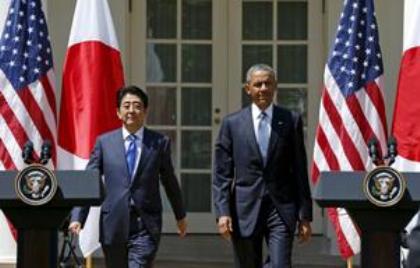May 23, 2016
TOKYO: US President Barack Obama will highlight the friendly ties between the
former hostile nations, the US and Japan, when he goes to Japan this week but
would not apologize for the devastating atomic bombing of Hiroshima by his
country in World War II. Obama will become the first sitting US President to visit
the site of the world's first nuclear bombing this Friday accompanied by Japanese
Prime Minister Shinzo Abe.

The US President will not apologise for the atomic bombing of Hiroshima on his
visit to Japan this week, Obama told Japanese public broadcaster NHK in an
interview. Obama said, "No, because I think that it's important to recognise that
in the midst of war, leaders make all kinds of decisions... "It's a job of historians
to ask questions and examine them, but I know as somebody who has now sat in
this position for the last seven and a half years, that every leader makes very
difficult decisions, particularly during war time."
"I think it is also a happy story about how former adversaries came together to
become one of the closest partnerships and closest allies in the world. Since I
only have a few months left in the office, I thought it was a good time for me to
reflect on the nature of war. Part of my goal is to recognize that innocent people
caught in war can suffer tremendously," he said.
Obama will be the first US President to visit Hiroshima, where the first atomic
bomb was dropped on August 6, 1945, during World War II. About 140,000 people
died in the attack. A second bomb hit Nagasaki three days later killing 74,000
people. The radiation aftermath continues to play havoc still.
However, it is interesting to note that in a recent Japanese survey, among 90
nationalities, 64.9 percent of Japanese respondents stated that Obama does not
need to apologize but that he should commit to nuclear nonproliferation. And,
among those who thought Obama should not apologize, the largest group of 28.3
percent comprised US respondents. Among a total of 1042 respondents, 42
percent said, “No, but he should commit to the nonproliferation of nuclear
weapons,” and 39 percent said, “Yes.”